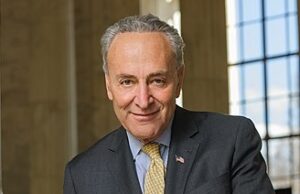Fundrise CEO Ben Miller and Developer Rick Caruso Discuss the Current State of LA Real Estate

Los Angeles is home to some of the most expensive and in-demand real estate in the world. Successful LA developers balance the steep costs of development with elevated demand in the area. One such developer, Rick Caruso, the storied founder of real estate company Caruso Affiliated, recently sat down with Ben Miller, founder and CEO of Fundrise, the largest direct-to-consumer alternative asset manager in the U.S., to take the pulse of LA’s property market amid a fluctuating economic landscape.
Their conversation on the “Onward” podcast touched on topics ranging from interest rates, inflation, the chance of a macroeconomic downturn, to the current cultural and political environment in LA.
The Macroeconomic Environment
Miller, known for his role in democratizing real estate investments at Fundrise, opened the discussion by referencing Goldman Sachs’ recent macroeconomic outlook report, Macro Outlook 2024: The Hard Part Is Over. Miller and Caruso were somewhat skeptical of the report’s optimistic take, which predicts subdued inflation and no recession.
Caruso underscored the unpredictability shadowing the current market, shaped by COVID-19, soaring interest rates, and geopolitical turmoil. He pointed to “cracks” in consumer spending and a recent uptick in loan defaults as signs to be cautious about assuming strong economic tailwinds.
“We have incredibly high interest rates. Consumer spending, we’re starting to see cracks in it. We’re starting to see all-time highs of defaults on car loans, personal loans. We’ve got credit card interest rates at 20%,” he said.
“You’ve got a war happening in the Middle East. You’ve got a war happening in Eastern Europe. I mean, there’s a lot going on and it impacts all of us. I think we’re going to have to really be on our game in 2024 and potentially some in 2025 to navigate through the complications that are facing us in business. I think it’s doable, but we’re going to have to be good at what we do.”
Caruso recalled his experience of the financial crisis of 2008 and the savings and loan debacle of the 1980s, noting some similarities and differences with the current environment. He attributed his firm’s resilience to a conservative approach, arguing for the need for a blend of caution and seizing opportunistic ventures in times of economic fluctuation.
“What we look for as we go through these times of disruption, and they generally are in 10- to 12-year cycles, we want to have enough liquidity, sort of dry powder, so that we can take advantage of opportunities that are out there. Because the properties themselves, even when times get tough, perform well. Ninety percent of our leases are credit tenants. They’re on long-term leases. You’re going to get some failures going through it if there’s a tough time, but we don’t get impacted that much.
“I don’t think we’re going to be going through anything anywhere near as dramatic as in the past of the great recession of the financial crisis,” he continued, “but I would certainly plan as we have in all of these recessions. You will get through them if you’re very conservative and anticipate the worst and hope for the best, but have a plan.”
A Bullish Outlook on the LA Market
Despite these macroeconomic concerns — and challenges such as high property taxes that Caruso called a “wet blanket” over some of the market — both Miller and Caruso expressed a bullish outlook on the resilience of the LA real estate market. They pointed to the city’s vibrant culture, including fashion, restaurants, and the entertainment industry, as well as the upcoming 2028 Olympics, as factors that could keep demand on the upswing and revitalization projects consistent.
Miller noted Fundrise’s investment in revitalizing industrial buildings in the West Jefferson neighborhood, highlighting the draw of the growing cultural opportunities in the area. Despite some challenges following the pandemic, Miller shared Caruso’s optimism.
“I am bullish on LA, the weather, the energy there, nothing like it,” he said. “One of my theories is that the Olympics could restart a narrative of rebuilding and bring a lot more capital and attention back to the city.”
There’s some data to support this position on LA’s resilience. Home prices in LA were up by 7% in November 2023 compared to the previous year, with homes selling for a median price of $1 million. More than 46% of homes sold above list price, up 10% year over year, and the percentage of homes with price drops was 21%, down 5% year over year. This increase in price suggests that demand remains robust despite a general downturn in the U.S. real estate market.
Miller also drew parallels between LA’s current struggles and the urban revitalization of Washington, D.C. — where Fundrise is headquartered — in the 1990s. Caruso emphasized the importance of political will in realizing such a turnaround, advocating for leadership that embraces the complexity of city management.
“Sometimes cities have to get to a point where things become critical and then there’s another point of view that comes in and gets things cleaned up and turned in a better direction,” he said.













